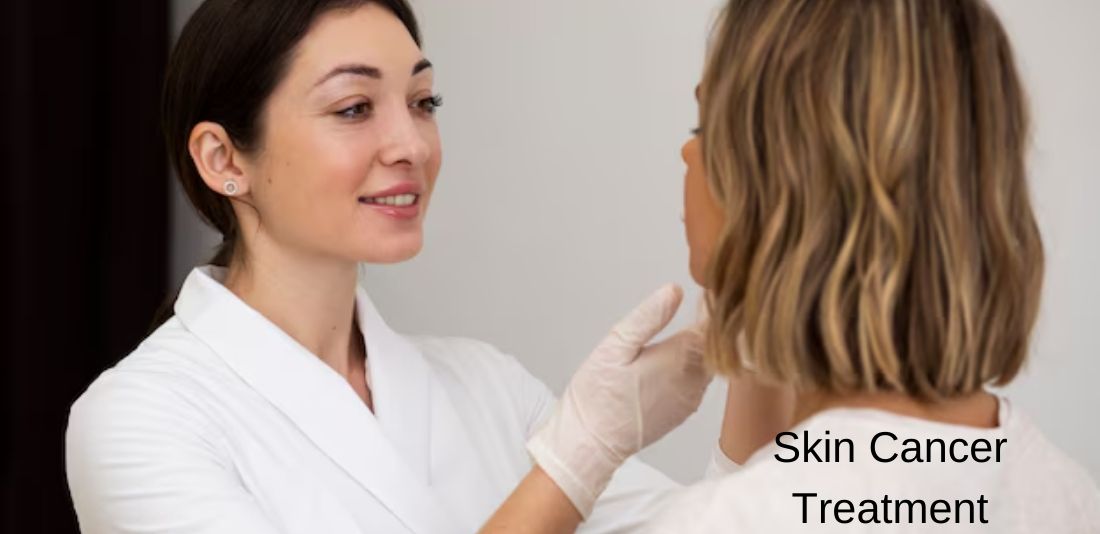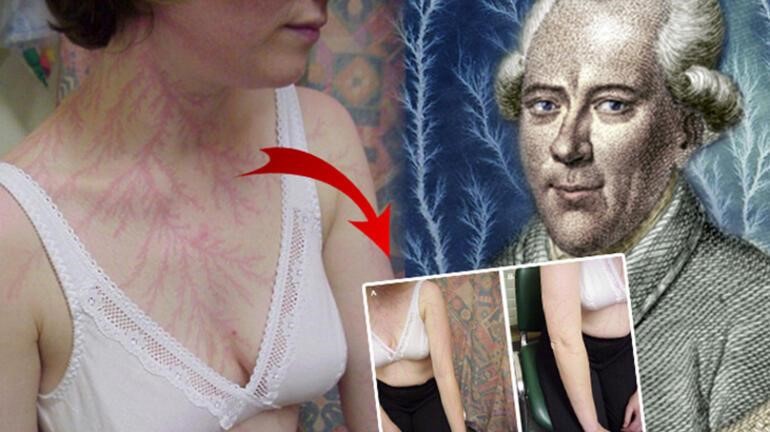What is Skin Cancer?
Skin cancer is a type of cancer that results from abnormal growth of skin cells. It typically develops in areas exposed to the sun and early detection is important. Symptoms include new growths, changes in color or shape, itching, and bleeding. Risk factors include sun exposure, fair skin color, and family history. Diagnosis is made through dermatological examination and biopsy, and early detection is crucial in treatment. Treatment options include surgical procedures, radiation therapy, and immunotherapy. Taking protective measures against the sun is important for preventing skin cancer. These measures include avoiding the sun, wearing protective clothing, and regular skin checks. Skin cancer is a serious health concern but can be managed with early detection and treatment. Adopting a healthy lifestyle and regular skin checks can help prevent skin cancer.
Types of Skin Cancer
Skin cancer is a type of cancer that results from abnormal growth of skin cells and has three main types: Basal Cell Carcinoma (BCC), Squamous Cell Carcinoma (SCC), and Melanoma. BCC usually grows slowly, rarely spreads, and can be successfully treated. SCC is a more aggressive type, early diagnosis is important as it can spread. Melanoma originates from pigment-producing cells and, although rarer, can metastasize. Symptoms include changes in the skin, lesions, scaling, or bleeding. Risk factors include sun exposure, fair skin color, and family history. Regular skin checks and early diagnosis are important. Successful management of skin cancer types can be ensured by consulting with a specialist doctor.
What Causes Skin Cancer?
Skin cancer can result from various factors coming together. Factors such as exposure to sunlight, genetic predisposition, burns, weakened immune system, and certain medical treatments increase the risk. Prolonged exposure to the sun, especially burns, increases the risk of skin cancer because UV rays can cause DNA damage. A family history of skin cancer, genetic factors, and burns also increase the risk. A weakened immune system also increases the risk. Therefore, regular skin checks, taking sun protection measures, and reducing risk factors are important. As the Melda Özekinci Clinic emphasizes, adopting a conscious approach and acquiring healthy lifestyle habits are important in reducing the risk of skin cancer.

What are the Symptoms of Skin Cancer?
Skin cancer manifests itself with abnormal growth or changes in the skin and early detection is vital. Symptoms include new growth or wound, changes in the color, shape, or size of the skin, itching, bleeding, or scaling. Although it usually occurs in areas exposed to the sun, it can rarely be seen in areas not exposed to the sun. Symptoms typically start with lesions or similar skin changes and may have irregular color, size, or shape. Early signs include changes in color, swelling, itching or pain, bleeding, or scaling in lesions. Early diagnosis can be achieved by consulting a dermatologist or specialist physician. As the Melda Özekinci Clinic emphasizes, recognizing the symptoms of skin cancer and seeking medical attention are important.
How is Skin Cancer Diagnosed in Antalya?
The Melda Özekinci Clinic offers various methods for accurate diagnosis of skin cancer in Antalya. These methods include dermatological examination and biopsy, which are gold standard diagnostic methods. Imaging techniques such as dermatoscopy and digital dermoscopy are also used for early diagnosis. Our clinic provides services with a specialized team using the latest technology and ensures that patients receive the best treatment. When any suspicious symptoms or skin lesions are noticed, it is important to consult a specialist dermatologist immediately because early diagnosis is the key to successful treatment.
How is Skin Cancer Treated in Antalya?
With the increasing number of skin cancer cases in Antalya, effective treatment services are gaining importance. The Melda Özekinci Clinic offers personalized treatment plans to patients diagnosed with skin cancer. Methods such as surgical intervention, radiotherapy, and chemotherapy are used. Under the leadership of Dr. Melda Özekinci, the team optimizes the recovery process of patients with minimal invasive surgical techniques and modern radiotherapy equipment. Chemotherapy protocols are meticulously determined. Our clinic provides services to those seeking skin cancer treatment in Antalya with its expert staff and modern equipment. You can contact us to create a suitable treatment plan to protect your health.
How to Prevent Skin Cancer in Antalya?
In regions like Antalya where the sun is intense, the risk of skin cancer is significant but can be reduced with appropriate precautions. Avoiding prolonged exposure to the sun during peak hours, using high SPF sunscreens, wearing light-colored and loose-fitting clothing, and protecting the head and neck from the sun are important. Sunglasses should have UV protection features. Not smoking and regularly undergoing skin examinations are also protective measures. Adopting a balanced diet and a healthy lifestyle can reduce the risk of skin cancer. The Melda Özekinci Clinic provides services to educate Antalya residents and help them develop healthy lifestyle habits.
Is There a Genetic Connection to Skin Cancer?
Yes, there is a genetic connection to skin cancer. Certain genetic factors can increase an individual's risk of developing skin cancer. Particularly in individuals with a family history of skin cancer, genetic predisposition may be more pronounced. Mutations in certain genes, especially those related to melanoma, can trigger the development of specific types of skin cancer. These mutations can disrupt the normal functioning of DNA in a person's skin cells, thereby promoting the formation of cancer cells. Additionally, certain genetic syndromes can also increase the risk of skin cancer. Therefore, the role of genetic factors in the development of skin cancer is important, and individuals with a family history are recommended to undergo regular dermatological check-ups. However, having a genetic predisposition does not guarantee that one will develop skin cancer because environmental factors can also influence the risk of skin cancer.
Why is Early Diagnosis of Skin Cancer Important?
Early diagnosis of skin cancer is a critical factor in increasing treatment success. In cases of skin cancer diagnosed early, cancer lesions are usually smaller and have a lower tendency to spread, making treatment options more effective. Skin cancer diagnosed at an early stage can often be treated with simple surgical interventions, which minimally impact the patient's quality of life. Additionally, early diagnosis of skin cancer can reduce treatment costs and shorten the treatment process. Early detection of tumors like skin cancer can help reduce the risk of serious complications that may occur in advanced stages. Therefore, regular skin examinations and prompt evaluation of abnormal skin changes are important for the early diagnosis of skin cancer, thus ensuring that treatment is provided most effectively. communication
 English
English 










